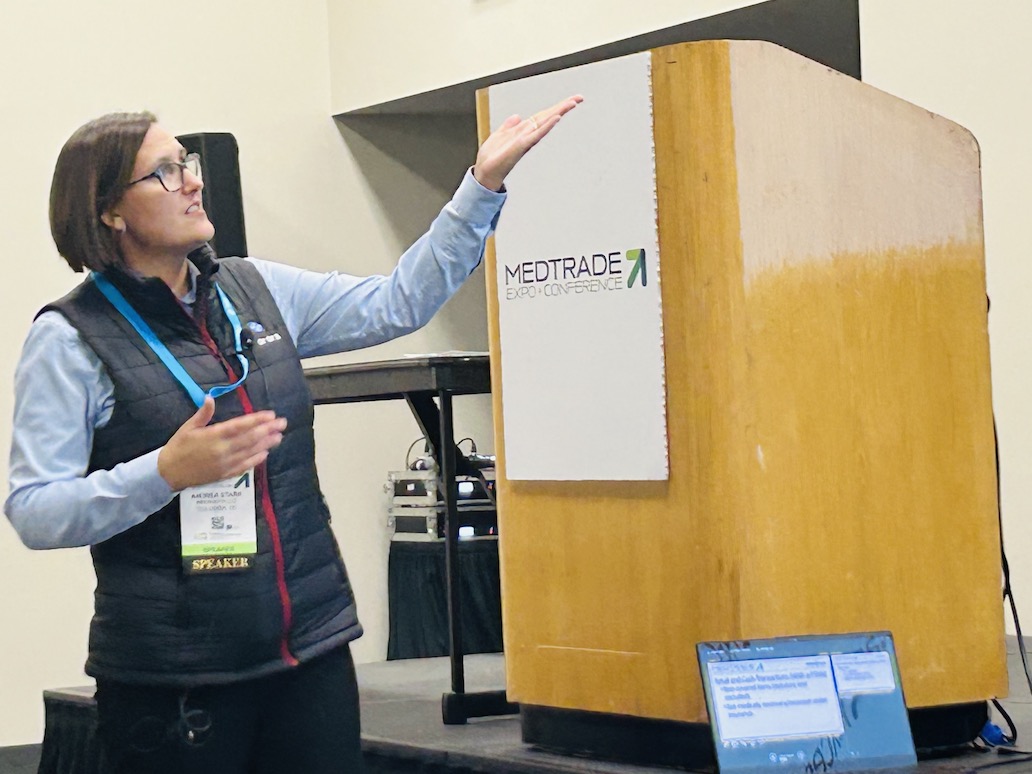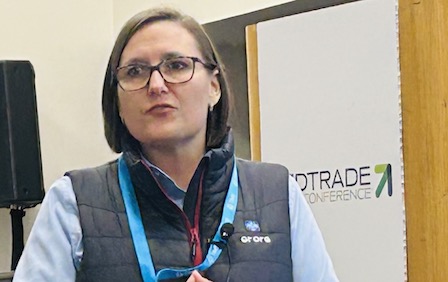DALLAS – If you missed Medtrade earlier this year in Dallas, you missed a lot. The wisdom from Medtrade’s world-class speakers is still highly relevant, particularly on the topic of getting paid. A panel discussion on retail / insurance operations, for example, yielded practical advice. Check out the extended excerpt from panelist Andrea Stark, co-founder of Miravista, who talked about opportunities for cash transactions.
“There are plenty of reasons to take cash with your PTAN [Provider Transaction Access Number] in your current operation. There are plenty of opportunities to be able to collect from patients legally without jeopardizing your PTAN, but you must know the rules for operating in this particular playground.
“Non-covered items are a perfect opportunity for a purely retail cash transaction with your customer base. We have what are called statutorily excluded items. Statutorily excluded means the law excludes coverage from the Medicare program. You guys know that Medicare doesn’t cover everything, right? It’s not just because your doctor wrote a prescription. When has that ever worked for you? Medicare doesn’t cover everything. There are lots of things Medicare doesn’t pay for.
 “Statutorily excluded items are never, ever covered. I don’t care how much your doctor wants you to have this or believes you need this. Diapers are excluded statutorily. They are not covered. They’re not DME. They are disposable supplies and are never ever covered.
“Statutorily excluded items are never, ever covered. I don’t care how much your doctor wants you to have this or believes you need this. Diapers are excluded statutorily. They are not covered. They’re not DME. They are disposable supplies and are never ever covered.
“You need to get that wheelchair into your house? How you can get that wheelchair into your house? Use a ramp, right? Are ramps covered? They are clearly medically necessary, but ramps are not covered because they are outside of the home. Anything used outside of the home is statutorily excluded.
“Never ever covered means; It doesn’t matter what documentation you have. When you submit that code, it’s going to deny due to patient responsibility. It doesn’t matter what your charge is or what modifiers you put on it. That code is always going to deny [patient responsibility] so that is one of the clearest cut examples.
“For those statutorily excluded / never ever covered items, you don’t need an ABN [Advance Beneficiary Notice]. Now you can get an ABN. You can use an ABN, and as a consultant I would encourage you to get an ABN, because it’s easier to train associates. If you don’t think the insurance is going to pay, use the ABN, educate your customers—get them on the same page, so we don’t have a gap in expectations.
“Get them on the same page and prepare them for what to expect, because they don’t know. If you ask your mom or dad to file their own insurance claims, they’re going to say, ‘What? I don’t understand insurance.’ You can do voluntary ABNs that explain that wheelchair ramps are not covered by Medicare. Therefore, you are going to have to pay me cash for this item. Please check the box to say that you understand and you still want to move forward.
“You can educate patients even if they choose to not file a claim. You are not obligated to file a claim for something that is never, ever covered. Make sure you have very good clarity about these non-covered items. You don’t have to jump through all the hoops, but it’s still a good idea for continuity and practice to either train your associates and get them to predict that denial and explain why they should get the patient on the same page.
 “Excluded items are a little bit different in that there’s language in the medical policy that excludes coverage. Does Medicare cover wheelchairs? Yes, they do, right? But what if that wheelchair is used exclusively to get back and forth to the flea market or to go to the doctor’s office? They’re not using it in their home. Is that wheelchair covered? It is not.
“Excluded items are a little bit different in that there’s language in the medical policy that excludes coverage. Does Medicare cover wheelchairs? Yes, they do, right? But what if that wheelchair is used exclusively to get back and forth to the flea market or to go to the doctor’s office? They’re not using it in their home. Is that wheelchair covered? It is not.
“Statutorily exclusions target the way the customer uses the product. It’s the [limited, scenario-specific usage] that excludes it [from coverage]. Wheelchair use exclusively outside the home is therefore excluded. That is also non-covered, but you should also voluntarily execute those ABNs to explain to the patient that because you’re using these services outside your home, and you don’t need it to accomplish your activities of daily living, it is not going to be covered. Those are the two distinctions of the different kinds of non-covered statutorily excluded items.
“Where do providers need to be careful when it comes to selling these types of non-covered items? Most non-covered items are fairly risk free, because they are never ever covered and so there’s not a whole bunch of liability. But with these excluded items where the patient says, ‘But my neighbor got her wheelchair covered, why didn’t you cover or bill mine or get this paid for? That gets a little more sticky, so you want to be consistent about disclosing the reason you expect a denial. In doing so, you should get those PR [patient responsibility] denials, which is what we want, and that means you are absolutely protected from ever having to refund those claims.
“When you do have a PTAN, Medicare has retained authority to take that money back, or to force you to repay the customer. If you don’t get that PR denial, you have to refund the patient within 30 days of denial. You have to do a timely refund.”
RELATED: Bruce Gehring – Getting Paid (March 21, 2025)

